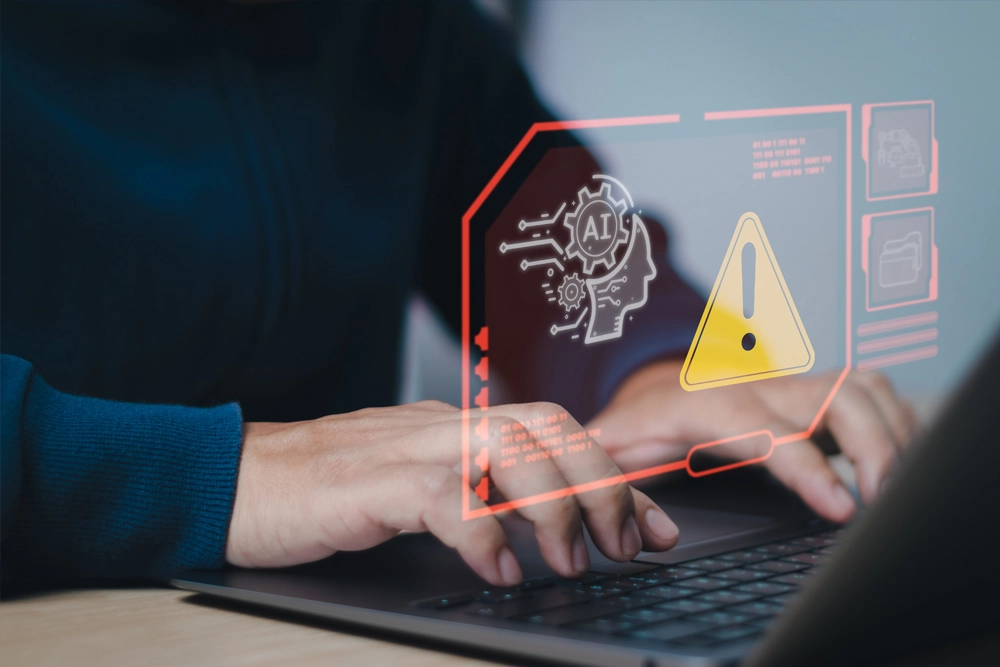In an increasingly interconnected and data-driven world, artificial intelligence (AI) has emerged as a transformative force. AI systems are now ubiquitous, from personal assistants on our smartphones to sophisticated algorithms that power search engines and social media.
However, as AI technology advances, the conversation surrounding security and privacy, or the lack thereof, becomes ever more critical. With companies such as Apple, Spotify, Verizon and Samsung banning ChatGPT due to OpenAI’s secrecy surrounding how it works, we look at the relationship between AI, security, privacy, and the pressing concerns and potential solutions that merit our attention.
The Privacy Predicament
Privacy, the right to control one’s personal information, has taken centre stage in discussions about AI. As AI algorithms process vast amounts of data, concerns about the misuse of personal information have escalated. The key aspects of the privacy predicament in AI include:
· Data Collection. AI systems often require extensive data to operate effectively. This data might include personal information, such as location data, browsing history, and even biometric details. The gathering of such data raises concerns about consent and data ownership.
· Surveillance and Profiling. AI-powered surveillance systems and predictive algorithms can be used to track individuals’ behaviour and preferences. This raises questions about the extent to which AI can intrude upon our personal lives.
· Data Breaches. The more that data is collected, the greater the risk of data breaches. These breaches can result in sensitive information falling into the wrong hands, leading to identity theft and other forms of cybercrime.
· Algorithmic Bias. AI algorithms trained on biased data can perpetuate societal inequalities and infringe on privacy rights, particularly for marginalised communities.
Security and AI
AI’s expanding role in society also necessitates a profound consideration of security concerns. The intersection of AI and security encompasses various dimensions.
· Cybersecurity. AI systems can be vulnerable to attacks, such as adversarial attacks designed to deceive AI algorithms. Ensuring the security of AI models is crucial to prevent malicious manipulation.
· Robotic Security. As AI powers more autonomous systems and robots, questions arise about their vulnerability to hacking and misuse, potentially posing physical security threats.
· Privacy-Preserving AI. Advances in cryptographic techniques and federated learning are promoting the development of privacy-preserving AI, where data remains encrypted and secure while AI models are trained.
Balancing Act. Protecting Privacy in AI
However, there are potential solutions to protecting privacy and security.
· Data Minimisation. Collecting only the data that is absolutely necessary for AI systems to function. Implementing robust data anonymisation and encryption measures to protect sensitive information.
· Ethical AI Development. Promoting ethical AI practices, including rigorous testing for algorithmic bias and fairness. Encouraging the development of AI models that respect privacy rights.
· User Consent. Ensuring that users have clear and informed consent mechanisms regarding data collection and use. Empowering individuals with the ability to opt-out or delete their data.
· Transparency and Accountability. Holding organisations accountable for their AI systems. Establishing regulatory frameworks that require transparency in AI development and operation.
· Security by Design. Embeding security practices into AI system design, conducting regular security audits and vulnerability assessments.
The intertwining of AI, security, and privacy presents a multifaceted challenge that demands ongoing attention. While AI has the potential to revolutionise industries and enhance our lives, the risks associated with privacy breaches and security vulnerabilities are equally significant. Striking the right balance between innovation and safeguarding individual rights is an ongoing endeavour that requires collaboration between technology developers, policymakers, and society as a whole. Only through a collective effort can we navigate the complex terrain of AI, ensuring that it remains a force for good while respecting the fundamental principles of privacy and security.




